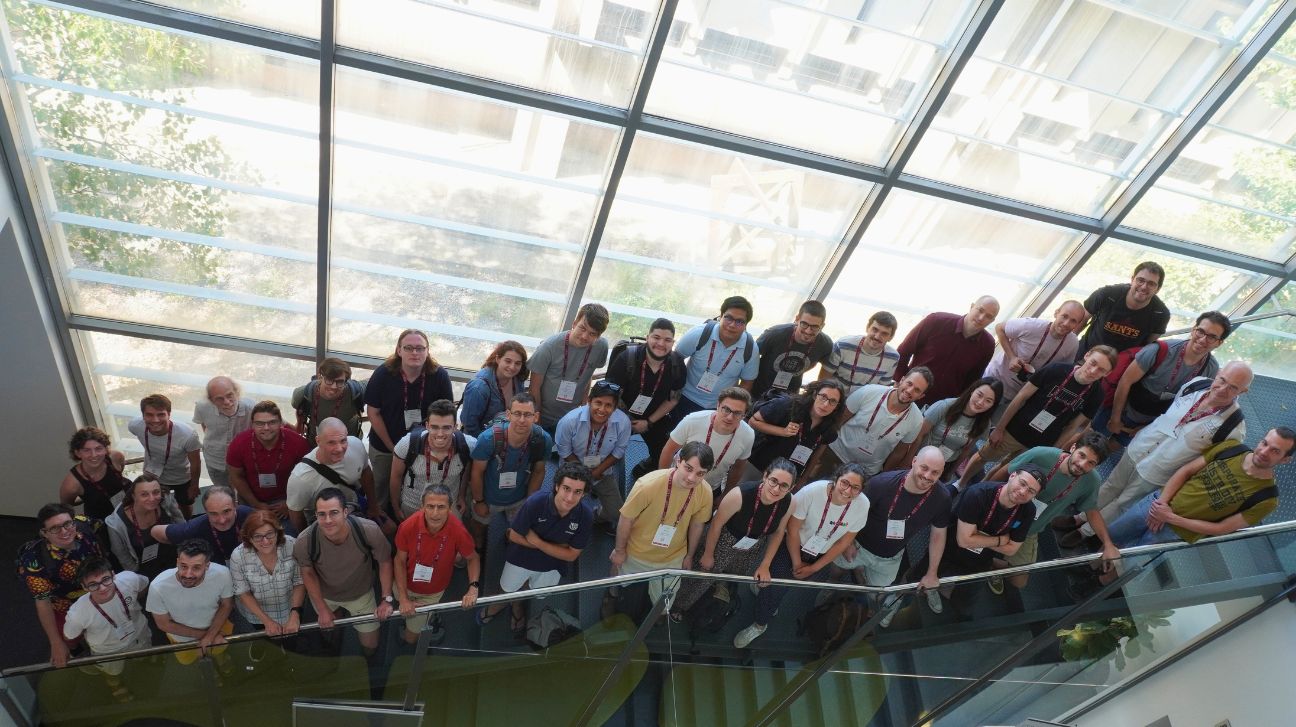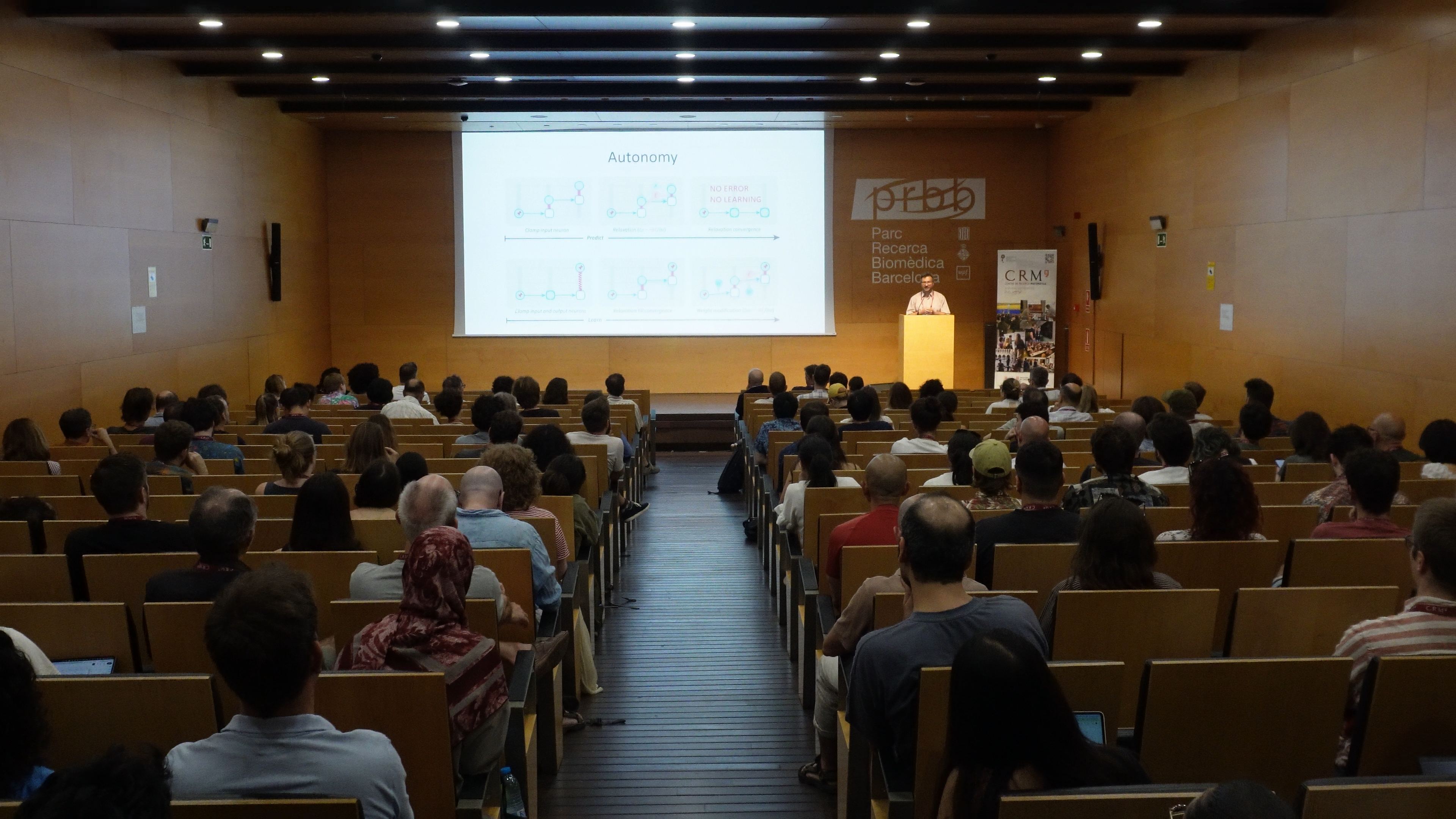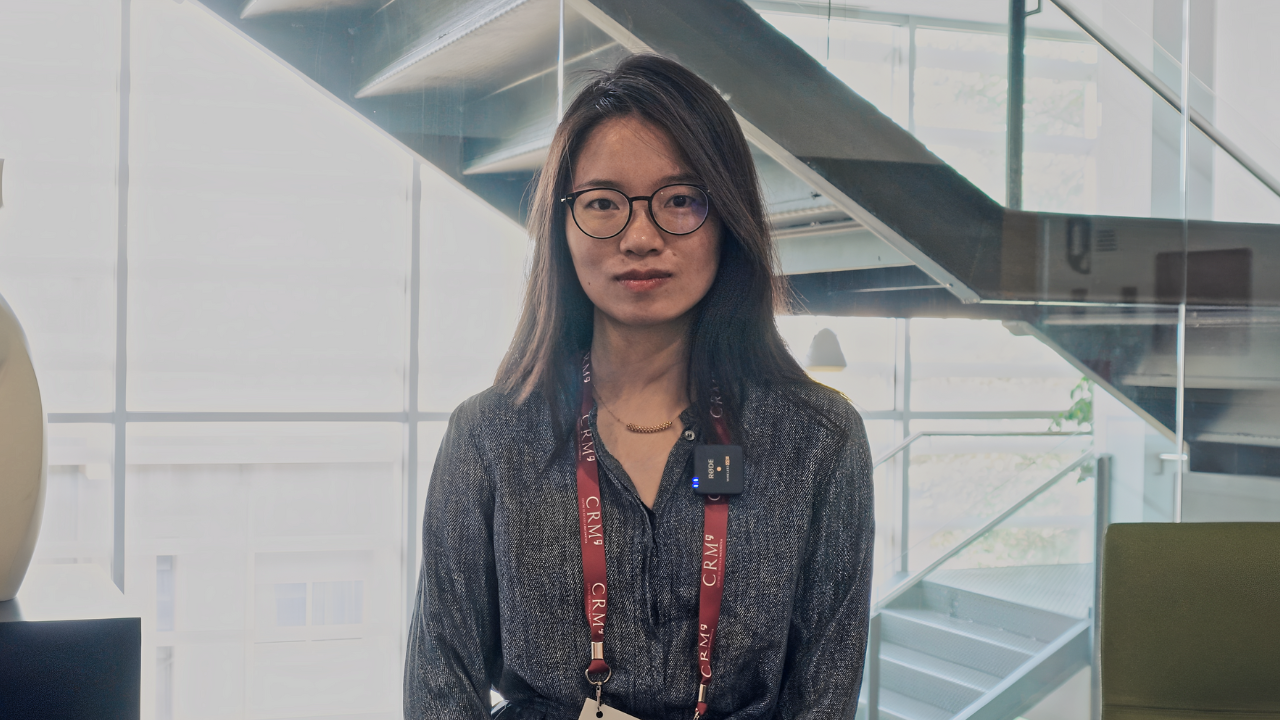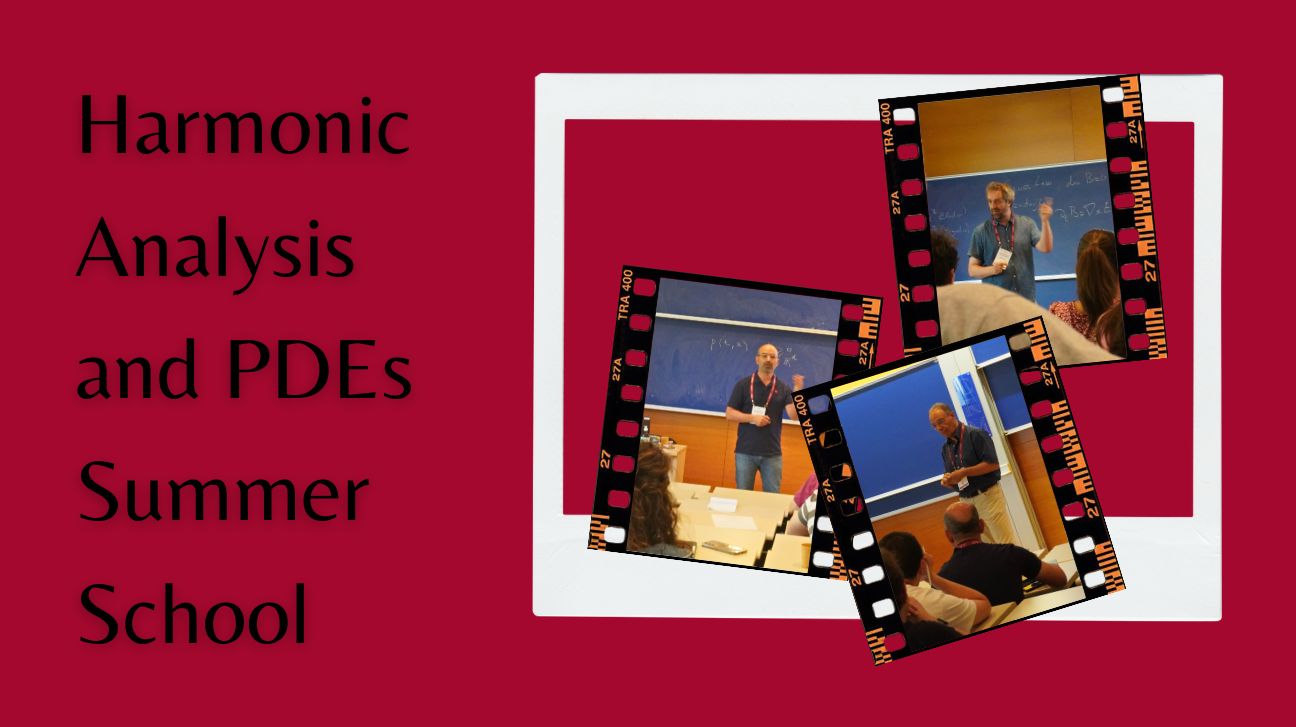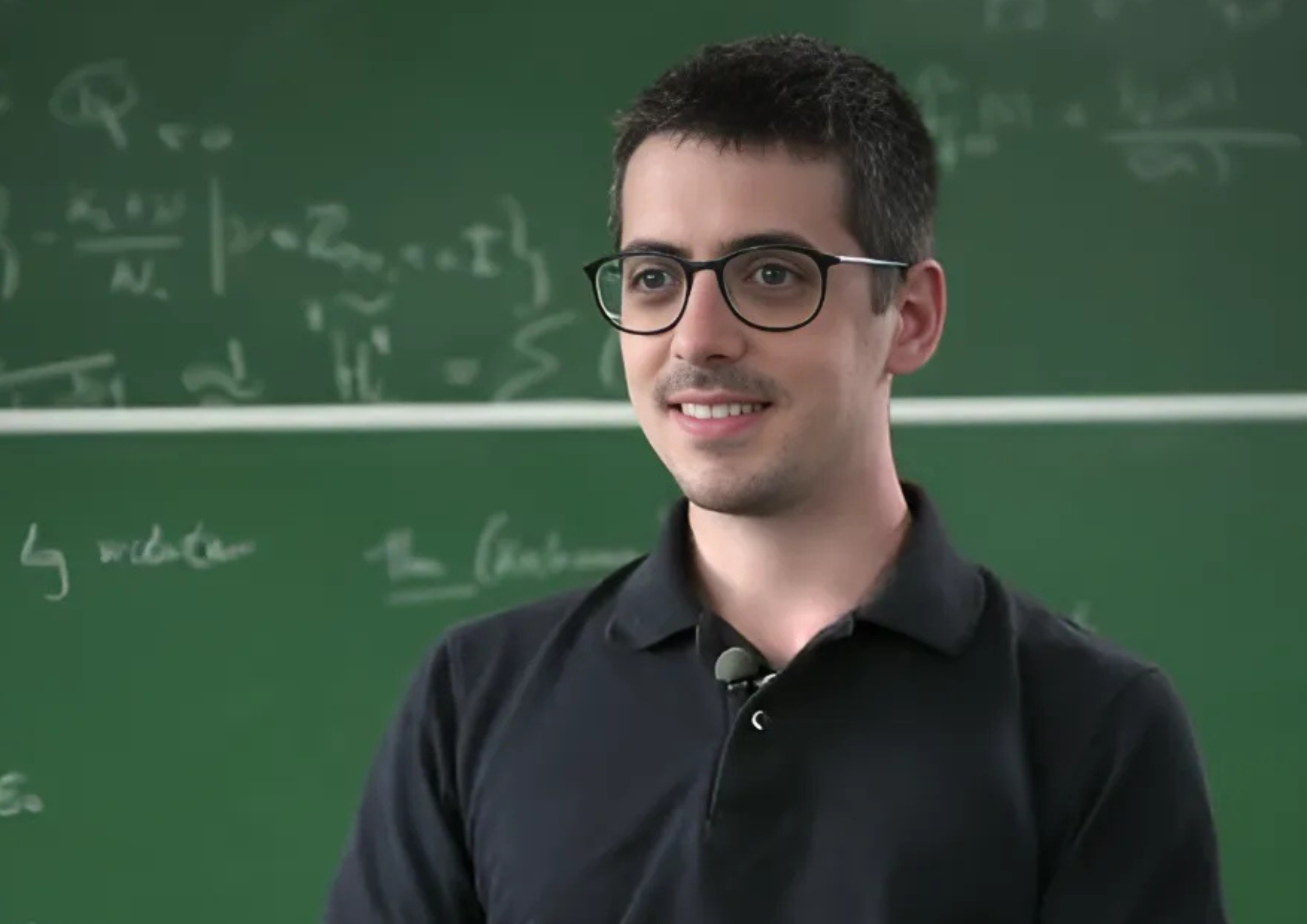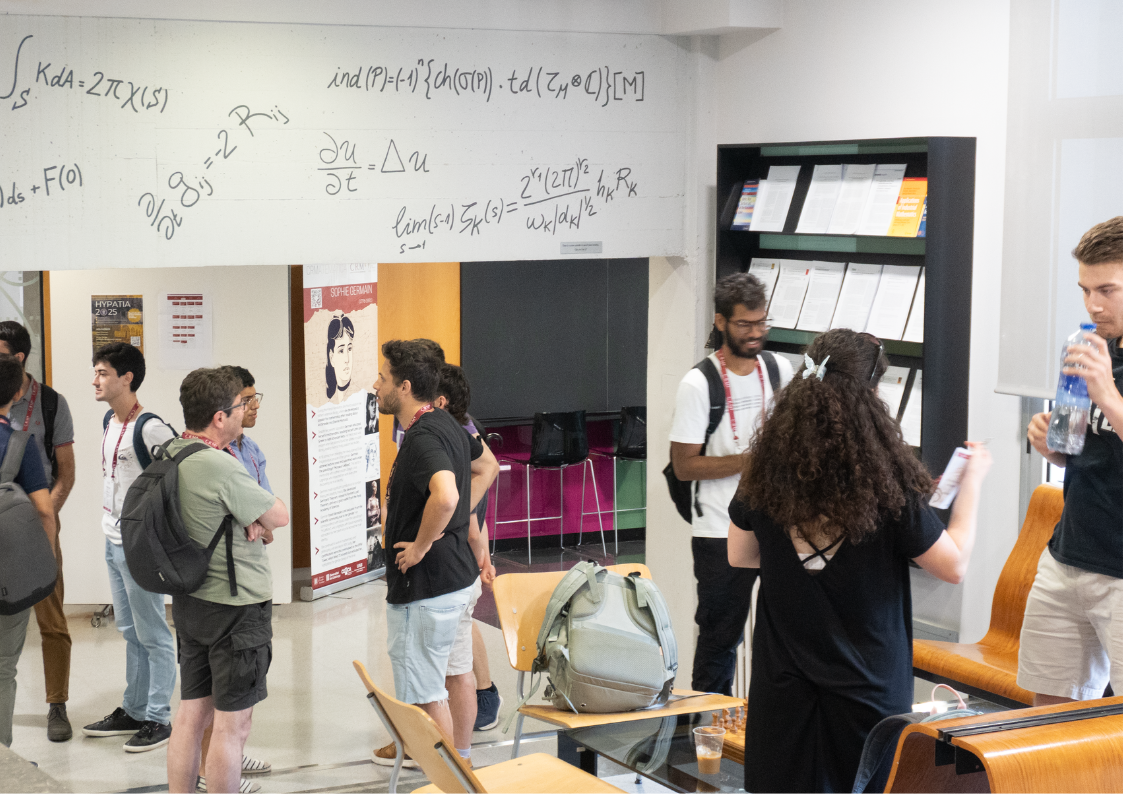On February 17th, the Catalan Institution for Research and Advanced Studies (ICREA) announced the awardees for the 2021 call of the ICREA academia prize, a list that includes UPC-CRM researcher Eva Miranda. The recognition, which is awarded for five years, aims at increase the international impact of research conducted at Catalan universities.

ICREA, the Catalan Institution for Research and Advanced Studies, has announced the awardees for the 2021 call of the ICREA academia prize. In the field of mathematics, the institution has recognized Eva Miranda, full professor at UPC and CRM researcher. The list includes about thirty experts from different fields of knowledge within the framework of the Catalan university system.
This is the second time Eva Miranda has received this distinction.
Eva Miranda is the head of the Lab of Geometry and Dynamical Systems. During her research career, she has received Marie Curie and Juan de la Cierva grants, and she was an honorary member at CSIC-ICMAT and at Observatoire de Paris. She has published over 50 articles and supervised 9 Ph.D. theses. In 2017 she was awarded a Chaire d’Excellence of the Fondation Sciences Mathématiques de Paris.
This is the second time she has been awarded by the ICREA institution. In 2016, the ICREA academia supported her work to improve the understanding of the role of singularities in Geometry and Dynamics and more concretely to develop a research plan in b-symplectic Geometry and Celestial mechanics. In 2016 she was the only mathematician in a list of 15 awardees in all areas of research.
During the five years that covers the prize, she will focus on the study of topics such as the singular Weinstein conjecture, the quantization of Poisson manifolds, and understanding the (computational) complexity in Fluids. Miranda worked on the Weinstein conjecture in the last years and extended its formulation to the singular realm in 2021. Now the challenge is to actually find these orbits and develop new machinery to do so such as a singular version of Floer homology. To illustrate with an example: Such singular orbits can be artistically represented as the reflection of the Rakotzbrücke Devil’s Bridge on the water. The [Q,R]=0 conjecture is wildly understood in Symplectic manifolds but singularities are left out of the picture. The aim of Eva Miranda is to prove this in the context of Poisson manifolds which would have an important impact on the study of Quantum models.
The last topic in which she started to work in the last couple of years was originally motivated by an approach of Tao of attacking the Navier-Stokes conjecture using Turing complete flows. If the programme works satisfactory this could help understand whether the blow-up of the Navier-Stokes equations (which would solve, in the negative, the Navier-Stokes conjecture in the Clay Foundation list) can occur or at least understand more about its complexity.
Miranda’s research is at the crossroads of Differential Geometry, Mathematical Physics and Dynamical Systems. She works with objects appearing on the interface of Geometry and Physics such as integrable systems and group actions acquainting for symmetries of the systems. She is particularly interested in building bridges between different areas such as Geometry, Dynamical Systems, Mathematical Physics and, more recently, Fluid Dynamics.
If you want to know more about her work, we recommend you to check out the interview with her included in the last Newsletter by the Instituto de Ciencias Matemáticas (ICMAT).

CRM Comm Team
Anna Drou | Paula Lomascolo | Pau Varela
JISD 2025 – Where Dynamical Systems Meet PDEs
JISD 2025, held at the Centre de Recerca Matemàtica (CRM) from June 30 to July 4, 2025, featured four advanced minicourses delivered by Dmitry Dolgopyat (on averaging and Fermi acceleration in dynamical systems), Serena Dipierro (on the theory of nonlocal minimal...
ICMNS 2025: Ten Years of Mathematical Neuroscience, Celebrated in Barcelona
The 10th edition of the International Conference on Mathematical Neuroscience (ICMNS 2025) gathered more than 150 researchers from over 25 countries at the PRBB in Barcelona. Organised by the CRM and UPC, with the support of UPF, the event...
Hong Wang: On Solving Kakeya and Rethinking Restriction
At the Modern Trends in Fourier Analysis conference held at the Centre de Recerca Matemàtica, mathematician Hong Wang (NYU Courant) presented a new approach to the Stein restriction conjecture, connecting it with geometric incidence problems...
A Journey through Harmonic Analysis and PDEs – CRM Summer School Chronicle
From June 25 to 27, 2025, the Summer School on Harmonic Analysis and PDEs brought together researchers and students for three days of advanced courses and discussion. With lectures by Taoufik Hmidi, Daniel Faraco, and Joan Verdera, the program covered topics like...
Guillem Blanco rep el Premi José Luis Rubio de Francia 2024
Guillem Blanco, professor de la UPC i investigador adscrit al CRM, ha estat guardonat amb el Premi José Luis Rubio de Francia 2024 per les seves contribucions a la teoria de les singularitats i els D-mòduls. El jurat ha destacat, entre altres...
Hypatia 2025 Brings Together Young Researchers in Mathematics
The fourth edition of the Hypatia Graduate Summer School took place from 16 to 19 June 2025 in Barcelona. Addressed to PhD students, the school combined two advanced courses in number theory with a public colloquium, a film screening, and...

